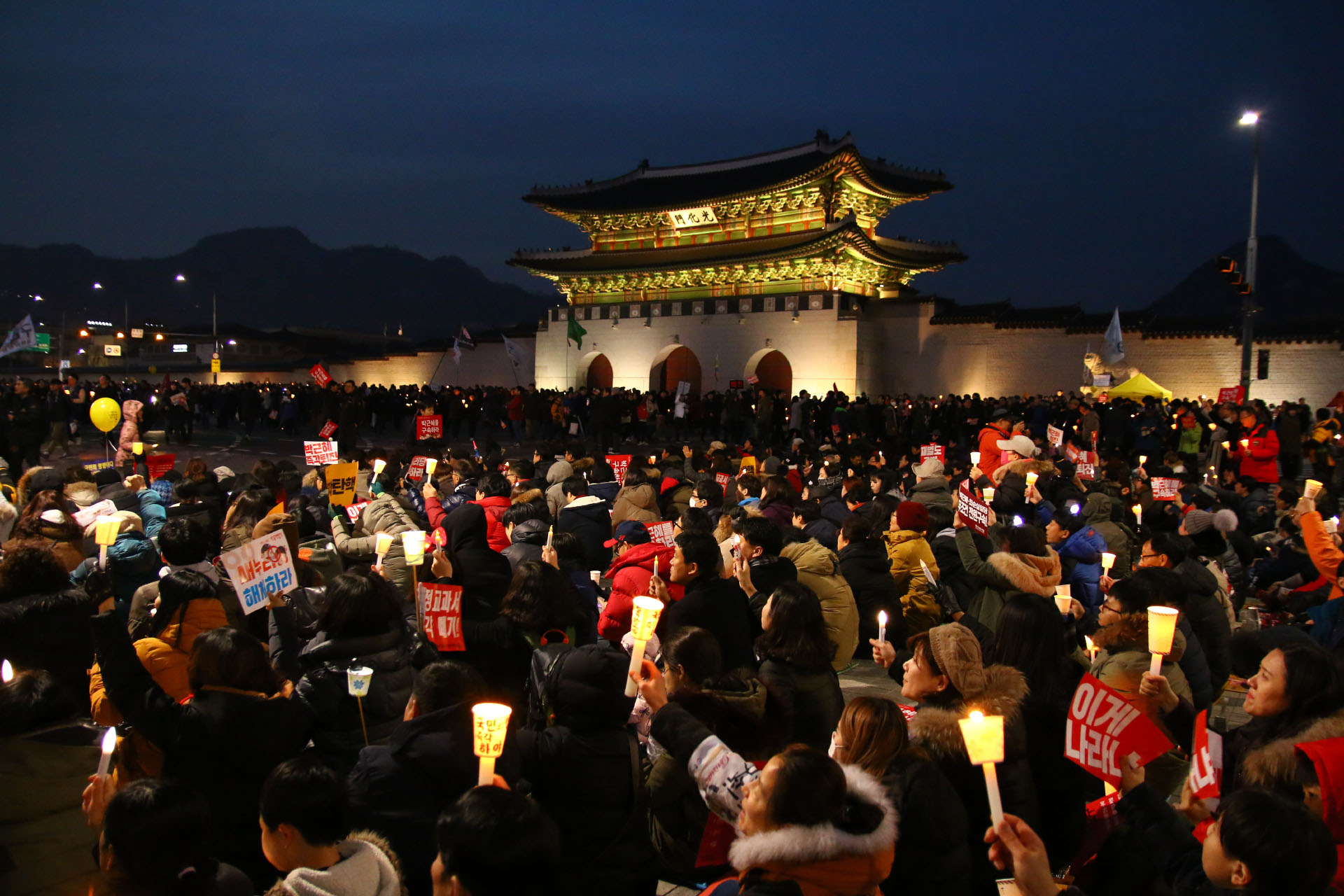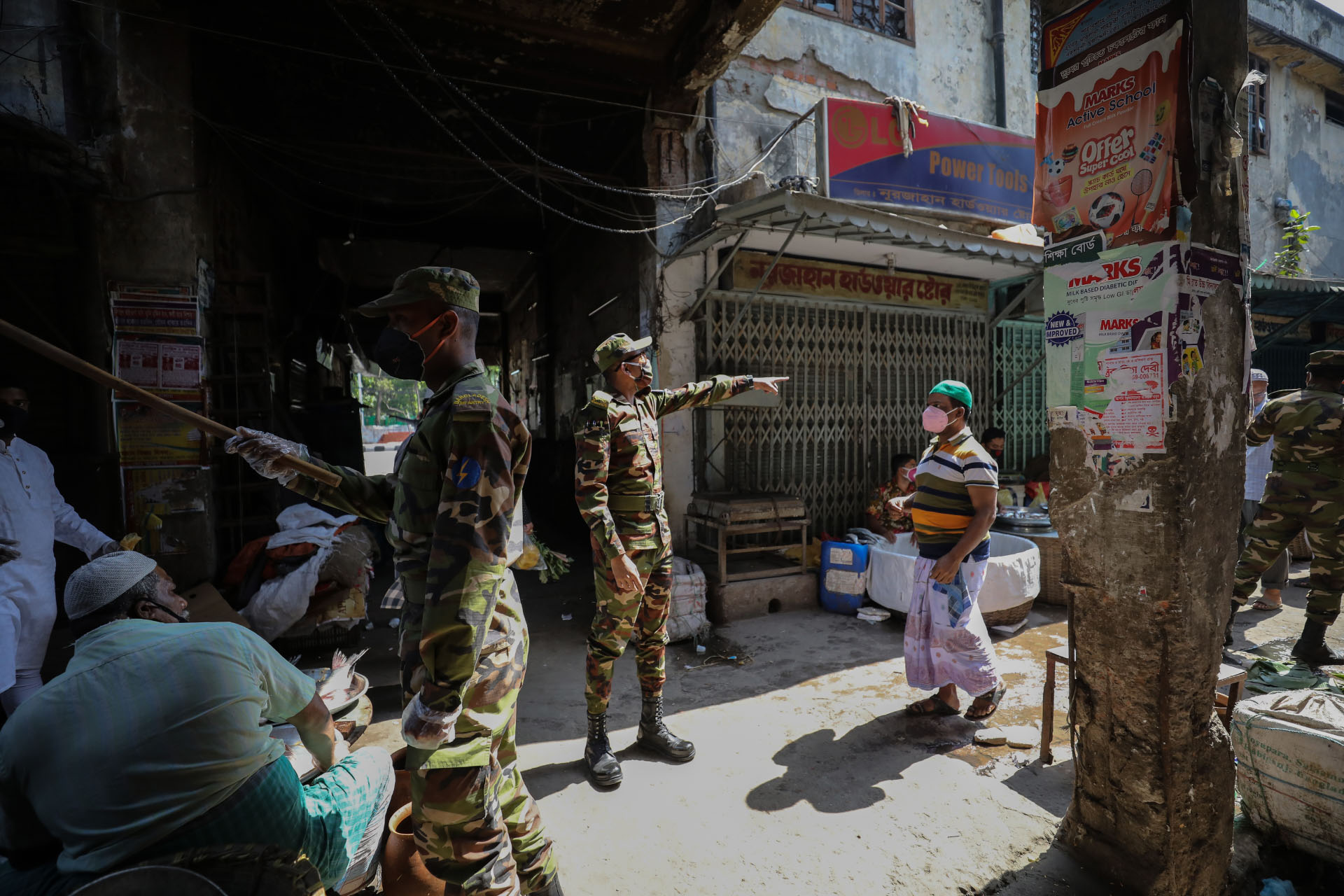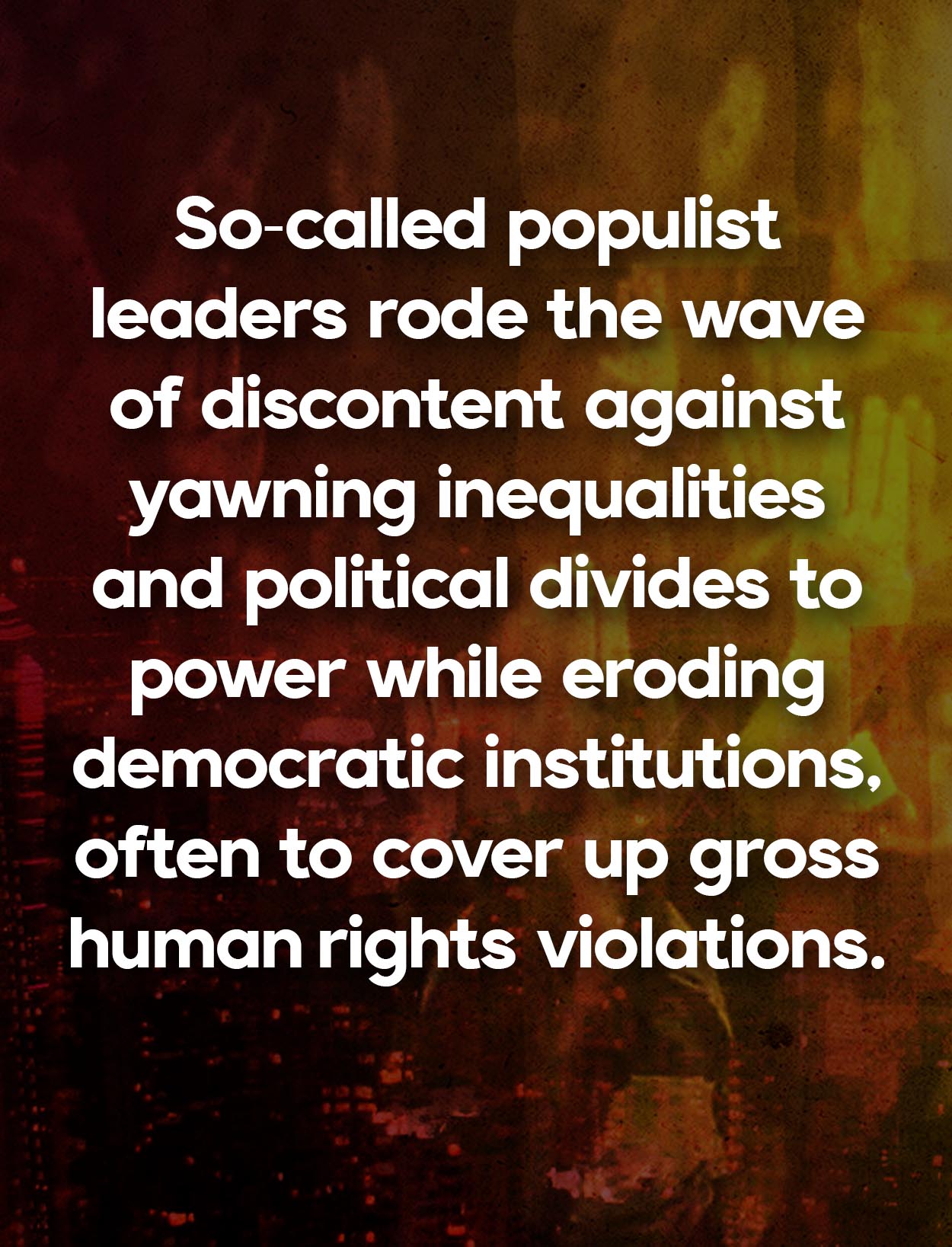|
Getting your Trinity Audio player ready...
|
This article is the first in a 10-part series collectively themed “Fostering Democracy Movements,” an Asia Democracy Network special 10th anniversary report produced by the Asia Democracy Chronicles. The release of this series is also in commemoration of Human Rights Day on December 10, 2023. The entire report can be downloaded here.
As the world stands on the precipice of an era marked by converging crises and diverging futures, democracy in Asia has never been in a more precarious state.
Over the past decade, the region has become a crucible for some of the most pressing challenges facing democratic governance across the globe today: from insidious backsliding and authoritarian resurgence to the catalytic disruptions of black swan events like the COVID-19 pandemic.
Today, democracy in Asia is at a pivotal crossroads. But the path forward is increasingly diverging through a prism of unending challenges, crises, and uncertainties. The stakes are high, and the implications are far-reaching, not just for Asia but for the global democratic order.
The past decade saw Asia go from a tapestry of maturing, resurging, and burgeoning democracies to a region entangled in democratic recession.
A growing field of research on “autocratization” shows a shift in methods in power-grabbing of “illiberal elements” from coups and blatant electoral fraud to a more covert and “gradual transition into electoral authoritarianism.” Using this framework, a clear decline in democratic elements – reflecting the tumultuous pathways of democracy in the region – becomes more stark.
Between 2012 and 2023, Asia underwent seismic shifts in democracy and human rights. Today, around nine in 10 people live in increasingly autocratizing regimes compared to six in 10 in 2012.
| Living in autocracies |
| Graph 1: Ninety percent of the global population lives in increasingly autocratizing regimes compared to six in 10 in 2012. |
| Note: Data computed based on Freedom House’s Democracy Index Scores (2012-2023) |
Yet while the recent pandemic has fanned the flames of authoritarian tendencies in the region, it would be a mistake to pin the unraveling solely on the era of heavy-handed lockdowns, because the data tell a more nuanced story.
Democratic indices in the region have dipped by an average of 8.5 percent since 2020. That may look alarming, but it’s less dramatic when compared to the 9.5 percent slide over the last decade.
Moreover, zooming in on the 26 countries under scrutiny – based on Freedom House data – reveals that only four of them (Laos, Myanmar, Sri Lanka, and Vietnam) experienced an accelerated pace of autocratization post-pandemic.
Six countries (Bhutan, Japan, Malaysia, Nepal, Taiwan, and Timor-Leste) meanwhile slowed down in democratization. (The other countries are Afghanistan, Bangladesh, India, Maldives, Pakistan, Brunei, Cambodia, Philippines, Singapore, Thailand, China, Mongolia, North Korea, and South Korea.)
Indeed, a historical overview spanning the last 10 years offers a glimpse of this drawn-out decline, exposing underlying trends, recurring patterns, and entrenched systems that have been chipping away at democratic principles long before the COVID-19 scourge entered the picture.
To understand and navigate the democratic erosion in the region, this critical inflection should be viewed through the lens of an interplay of internal governance and external geopolitics and how these forces converge to either breathe life into democratization or set the stage for autocracy in Asia.

Democratic rollercoaster
The early 2010s were characterized by a wave of optimism for democracy across Asia, fueled by landmark political reforms and burgeoning civil society movements. This period, however, was also marked by a global erosion of trust in democratic institutions in the West and punctuated by humanitarian crises and domestic conflicts.
A series of political reforms in Myanmar – which most of the world then still called Burma – including the release of 651 political prisoners and constitutional changes, the consolidation of Indonesia’s electoral democracy, and peaceful political transitions in both the Maldives and Nepal injected a huge dose of optimism into pro-democracy movements in Asia in 2012.
But this optimism was short-lived as Nepal’s constitutional crisis and Abdullah Yameen’s sharp U-turn in the Maldives in 2013 undermined projections of a democratizing Asia. In Myanmar, the swelling violence against the Rohingya, an ethnic Muslim group in the Buddhist-majority country, underpinned the democratization of the once closed-off Southeast Asian nation.
The year 2014 proved to be a pivotal point, manifesting extremes in Asia’s political spectrum. On one hand, the young rebels of Hong Kong’s Umbrella Movement embodied the aspirations of civil society for more democratic governance. On the other hand, Thailand’s military coup starkly illustrated the volatile nature of emerging democracies in the region.
That period showcased how democracy and autocracy are not isolated phenomena but intersect in complex ways, often influenced by internal crises and external geopolitical maneuvers. It also heralded the fractures that would give rise to increasingly militarized governments and the return of coups and conflict in subsequent years.
The years 2015 to 2018 would be fraught with challenges that put democratic institutions and human rights under considerable strain. But this period surprisingly stands out as a time of relative stability in Asia’s democratization journey. During these years, at least seven countries annually recorded positive shifts in their democracy indices.
For instance, Myanmar’s landmark elections, a culmination of peace deals among ethnic armed groups and democratic consolidation, saw a historic victory for the National League for Democracy over the military-backed parties.
Park Geun-hye’s 2016 impeachment from the highest office in South Korea after massive anti-corruption protests, and Malaysia’s 2018 elections following the 1MDB corruption scandal, which broke the decades-long streak of the dominant party in the ruling coalition, also lent credence to a democratizing region – albeit in waves.
And yet, this period also marked a significant shift in the geopolitical dynamics that have had a profound impact on the pathways of democracy in the region. As the world gravitated toward a more multipolar geopolitical landscape, China’s influence in Asia began to grow exponentially, highlighted by the roll-out of its trillion-dollar Belt and Road Initiative.
The stage, in fact, was being set for China today under Xi Jinping, and an increasingly multipolar world that will shape Asia’s political climate. From debt-trap diplomacy to Japan’s return to militarism, today’s increasingly volatile geopolitical tensions in Asia are playing a huge role in the region’s future – underscoring the need for a nuanced understanding of how geopolitical dynamics can influence the direction of democratic governance.

Rise of populism
Between 2016 and 2018, a populist wave swept across several Asian countries, bringing with it a paradoxical blend of democratic engagement and authoritarian tendencies. So-called populist leaders rode the wave of discontent against yawning inequalities and political divides to power while eroding democratic institutions, often to cover up gross human rights violations.

From the bloody drug wars in the Philippines and Bangladesh, to the consolidation of power through electoral authoritarianism in India and Cambodia, this period also marked an unmistakable rise in autocratization amid persistent economic and political crises in Asia.
The advent of disinformation and digital authoritarianism, accompanied by a new wave of laws suppressing freedom of expression, crackdowns on dissent, and violence against media practitioners during those years catapulted Asia into the worst region for journalists, activists, and opposition parties that it is today.
By the end of 2018, a steady increase in autocratization across the region kicked off, with at least one ercent average nominal increase and five percent weighted by population. But people were not immediately cowed by the strongman tactics of their leaders. Thus, 2019 would soon emerge as the year of protests, witnessing the rising tide of pro-democracy movements in Asia, specifically in Hong Kong and Thailand; new waves of protests against repression in India, Nepal, and Bangladesh; as well as workers’ strikes in Vietnam and China. Women and LGBTQIA+ movements also saw huge wins as well as huge setbacks in this period.
But then 2020 ushered in an era defined by unprecedented disruptions, with the COVID-19 pandemic serving as the quintessential black swan event. While the immediate focus was understandably on public health, the pandemic also acted as a catalyst for authoritarian tendencies, offering a convenient pretext for the enactment of repressive legislation and the erosion of democratic checks and balances.
Ironically, this period initially saw the height of Hong Kong protests – led by the youth – and re-emergence of transnational activism, most notably in the freedom of expression and the climate justice space. But the pandemic would later spark and normalize stringent measures against protests. There was a convergence of democratic decline across the board, with only Nepal showing signs of positive developments in democratization by 2022.
In the midst of the global health crisis, numerous pieces of legislation were enacted under emergency powers and proved instrumental in curtailing civil liberties and stifling political dissent. The Philippines, for one, expediently passed the Anti-Terrorism Act of 2020. Elsewhere in Southeast Asia, the February 2021 coup in Myanmar raised the ante of authoritarianism in the region – reigniting numerous conflict zones.
Today we see the landscape of democracy in Asia increasingly shaped by a convergence of crises – economic, political, and social – each amplifying the other in a world that is decidedly multipolar.
Ballooning pandemic debts and a roiling economic crisis underpin 2023 – increasingly a year of intensifying inter-country conflicts and superpower-posturing in the region. This complex tapestry of challenges is testing the resilience of democratic systems and redefining them for generations to come.
Understanding the intricate interplay of democracy and autocratization in the last 10 years is key to formulating data-driven strategies capable of fostering democratic resilience and safeguarding human rights.
As Asia struggles to reclaim civic space and restore democracy, it must carry with it the lessons of history, armed with the nuance and context necessary to approach the region’s political complexities with both caution and optimism. ◉



















